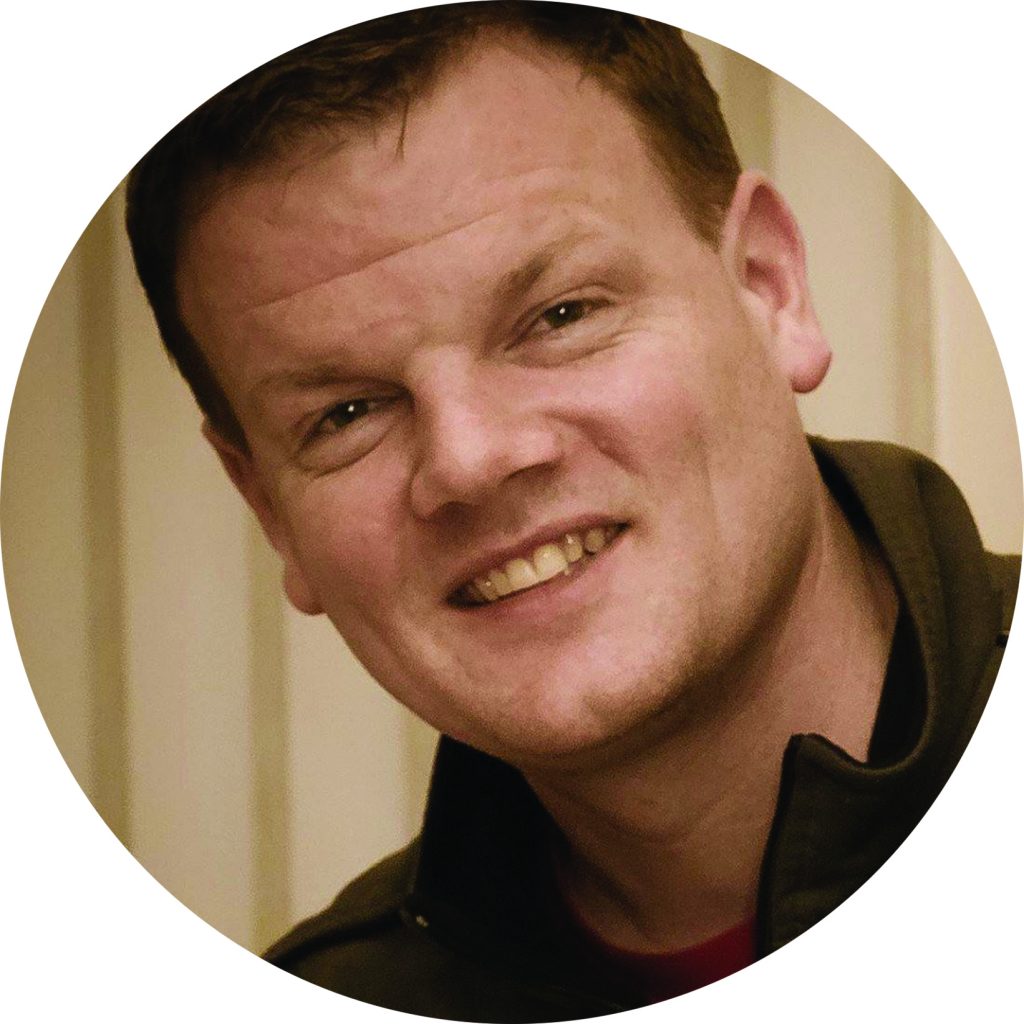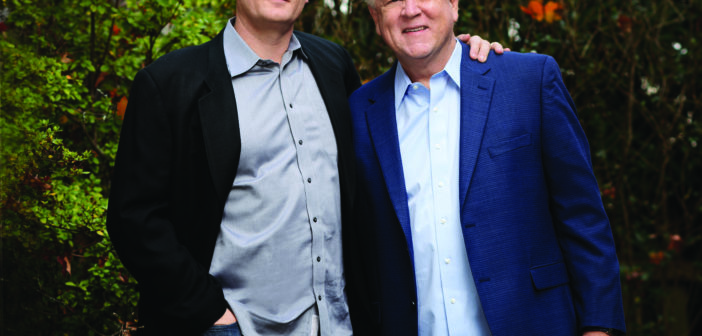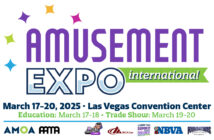COVID-19 Crisis
Are There Applicable Lessons from Industry History?

Howard McAuliffe
by Howard McAuliffe, Partner, Pinnacle Entertainment Group
“It was like somebody turned a light switch off.” My father, George McAuliffe, used this quote many times over the years about the video game crash of 1983. Sound familiar today? In preparing for this article, I realized that Time-Out, the company he worked for in 1983 and ultimately led, had two years of 20-percent declines starting that year. It struck me that what they experienced then was more like the lights dimming. What we have now is the lights going off.
For this column, I had a discussion with Dad about his experience through other industry downturns to see what we could learn from them and to help us understand what the future might look like coming out of this. We’ve consolidated the conversation into the excerpt that follows.
Howard: Dad, what do you think of this novel Corona Virus?
George: It’s beyond imagination, beyond the predictable. Three weeks ago, we were at Amusement Expo thinking this would blow over in a few weeks. Now, virtually all FECs across the country are dark, and hospitals are on a war footing. My heart goes out to operators and suppliers and all the families affected.
We talked about how this disruption is more sudden and extreme than 1983. The impact has come quicker and is more damaging than the video game crash. Is there anything “better” about this disruption?
Yes, I think there is. In 1983, Time-Out had about 50 locations and 90 percent of our business was video games; the other 10 percent was pinball. When consumer games –– home video –– came out in mass, the arcade, as we knew it then, became largely obsolete. Leading up to today’s crisis, we believed we were in the middle of the arcade “heyday” with numbers in recent years among the best we have ever seen.
I think our business models will still be viable and I don’t think this is a permanent disruption that will make us obsolete. Sure, we’ll have some changes as an industry, but in the mid 1980s, we had to totally reinvent the business.
How did you change it then?
We brought in redemption in 1983. Skee-Ball was our first. The games were 13 feet long so we had to have them shortened to fit our spaces. Skee-Ball did this for us at your Uncle Tom’s request. [Editor’s note: The late Tom McAuliffe was longtime VP of Operations for Time-Out.] We started to provide redemption counters and learn redemption merchandise. In 1986, we put out our first cranes, which were imported from Elaut. The cranes saved our company; they added 25 percent to sales. This got us through as we developed redemption and evolved up to multi-attraction, large-footprint FECs.
It strikes me that for the 37 years since 1983, a lot of our operational and consulting work has been directly linked to both redemption and attractions with 10 years of focused crane operations mixed in. That crisis forced Time-Out and the industry to innovate into new business models that have sustained us for decades.
Yes, that’s true and it wasn’t just Time-Out.
Among the things I love about our industry are its people and their openness. We’re seeing a lot of sharing and helping in today’s climate. It was the same back then. As an example, I first met George Smith of FEG and F2FEC in the mid-80s. We were both young regional managers for our companies, both of which sent us to review a hot new game at the time. We’ve been friends ever since. The survivors of the ’83 crash evolved as an industry, along with manufacturing and distribution.
I’ve been thinking a lot about the rise of the bowling entertainment center over the last 10 years. That rise came after the “Great Recession” in 2008. Was this downturn a catalyst for the transformation of the bowling industry?
It makes a lot of sense. The league bowling business had been declining for years and the recession gave bowling centers another hit. Many realized they needed to “change or die.” Adding restaurant-quality food and beverage along with family entertainment, especially arcades, has been a home run. The marriage of bowling and FEC has driven growth for both the family entertainment and bowling industries.
Bowling facilities have become a big segment of our business for the last 10+ years. Focusing again on the coronavirus, there will have to be some changes to our industry coming out of a shock like this. Armando Lanuti from Creative Works said the other day that “cleaning is going to have to be part of the show.” That makes sense. Facilities must be diligent about cleaning and let customers see that they are. What else do you see happening?
Absolutely, hygiene will stay top-of-mind for a long time. Something Michael Nowak of Rhode Island Novelty said to me the other day struck home. He said, “Our customers exist to provide places for people to gather.” We’ll have to actively make them comfortable, as Armando alluded.
There will be pent-up demand for social action, but consumers will be more discerning about where they go. We’ll have to work harder to give people a reason to come out. We’ve also experienced an economic hit. In good times of easy money, we saw many operators get by with sloppy business practices: not watching expenses, overpaying for product and/or underdelivering an experience to their customers. That will have to change in the recovery.
This virus – and resulting shutdown – has been a big hit to our industry and business. You have had a great career, are ready to hang it up and retire?
No, I love this industry and I’m enjoying working with you and our clients. I’m excited to bring some of the new products and innovations we’ve been working on to market and try to help our clients get back to being prosperous. I may slow down a little at some point, but I’m all in right now.
I’m happy to hear that. I am optimistic too, though I believe we are in for a challenge as the industry rebounds. We haven’t been operating much in the last few years, but I see putting that back into the Pinnacle business mix going forward.
That’s great and is more important than what I think. What I’m saying is that if you’re bullish on the industry long term, that’s a definite positive!
Howard McAuliffe loves to imagine and implement new products, business models, and ideas, and is a partner in Pinnacle Entertainment Group Inc. He’s an industry veteran who got his start in the business when he was just 16 and has 20 years of expertise in product development, as well as FEC and route operations. Howard’s wife Reem and young son Sami are the center of life outside of work. When he’s not working, Howard can be found enjoying the outdoors, hiking, fishing and mountaineering. Traveling anywhere new or to old favorites like the American West is a passion. Readers can visit www.grouppinnacle.com for more information or contact Howard at howardmc@grouppinnacle.com, he welcomes positive as well as constructive feedback and counterpoints.




